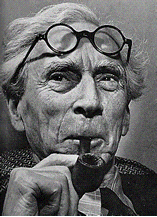 Related Materials
Related Materials| Lecture | TuTh 9:30-10:50 | Cognitive Science Building 001 | Jonathan Cohen |
| Section 1 | M 12-12:50 | Center Hall 203 | Dale Dorsey |
| Section 2 | M4-4:50 | Center Hall 205 | Tarun Menon |
| Section 3 | Tu8:-8:50 | Center Hall 201 | Dale Dorsey |
| Section 4 | F 1-1:50 | Center Hall 207 | Tarun Menon |
| Cohen | Humanities and Social Sciences 8072 | Tu 1:30-3 |
| Dorsey | Humanities and Social Sciences 7059 | F 2-3 |
| Menon | Humanities and Social Sciences 8037 | Tu 2:30-3:30 |
Note that the third paper will count as your final exam: it will be due during exam week, so you'll have plenty of time after the end of official course instruction to complete it.
There will be no midterm for the course.
We'll also read Gettier's "Is Justified True Belief Knowledge?", Analysis 23(6): 121-123.
 Related Materials
Related MaterialsI can't emphasize enough the importance of starting your writing early. The process of writing -- even if only starting with a half-baked idea -- will help you crystalize your thoughts and get clear on what you do and don't understand. That, in turn, will tell you what you need to do next to refine your ideas. Also, starting early allows you the (necessary) luxury of setting out, reconsidering, revising, and developing lines of thought. I would also recommend highly that you consult Jim Pryor's extremely useful advice on writing philosophical papers. Obviously, these materials are not designed for our writing assignments in particular, but the advice they give is generally sound and applicable.
And if there's something in the course that you don't understand, come see me (or one of the TAs) about it. Getting the issue cleared up sooner rather than later means that it won't create other problems for you, and will allow you more time to enjoy the warm glow of understanding. This is why God invented office hours. You've paid your tuition, so don't let material go over your head; come and get the education you deserve!